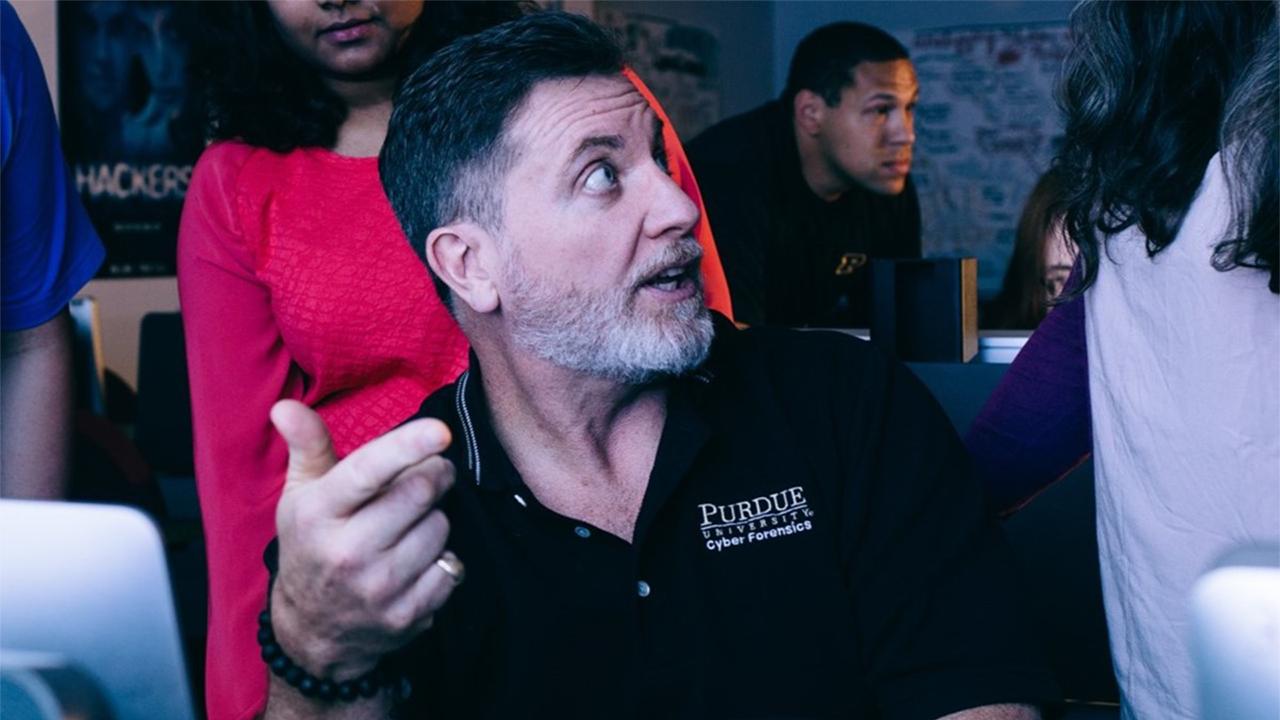Marcus Rogers, a Purdue Polytechnic professor in the School of Applied and Creative Computing and the college’s associate dean for faculty, appeared on Tony Katz Today show on 93.1 FM WIBC to provide expert analysis on the widespread internet outage that disrupted major online services on Nov. 18, 2025.
The interview followed a major global outage from the internet infrastructure company Cloudflare, which caused service disruptions for a significant portion of the web, including sites like X (formerly Twitter), Spotify, and OpenAI. While Cloudflare attributed the issue to an internal software crash, Rogers explained that the event highlights a much larger and more concerning vulnerability in the internet's architecture.
"We're dealing with something called a ‘single point of failure’ problem," said Rogers, also the director of Purdue Polytechnic’s Cyber Forensics Lab. "When these [companies] become so big, so ubiquitous that everybody uses them ... you have single points of failure. So if that company happens to have a problem, then it affects almost everybody."
Rogers noted that this concentration of services in the hands of a few companies means that widespread disruptions are easier to trigger than they might be in a system that is more diffuse. "You really don't have to go out now and attack multiple companies to cause problems," he said. "You only have to attack one of these large single points of failure, and the entire internet's impacted."
While Cloudflare stated there was no evidence of an attack, Rogers expressed a healthy skepticism, pointing to the lack of required transparency in the U.S.
"What I always find very interesting when these companies claim it was a misconfiguration—well, you're such a large company. How could one misconfiguration take everything down?" Rogers said. "Aren't you supposed to have redundancy, not have these single points?"
Such outages are a massive commercial inconvenience, to be sure. They can also quickly escalate to matters of national security, because the U.S. government relies on the same internet infrastructure as everyone else.
"An outage like this not just only affects us to get on Zoom. It can affect lawmakers. It can affect government agencies. It can affect the airlines," Rogers said. "It can affect a lot of our critical infrastructure, and that makes it a national security issue."
Looking ahead, Rogers warned that without systemic changes, these large-scale outages will continue. "This isn't the end of it," he said. "We are going to see more and more of these single points of failures in the coming years. These things are going to continue to happen unless we do something about it. … Competition is healthy, and we don’t have that right now with the internet"
Additional information

